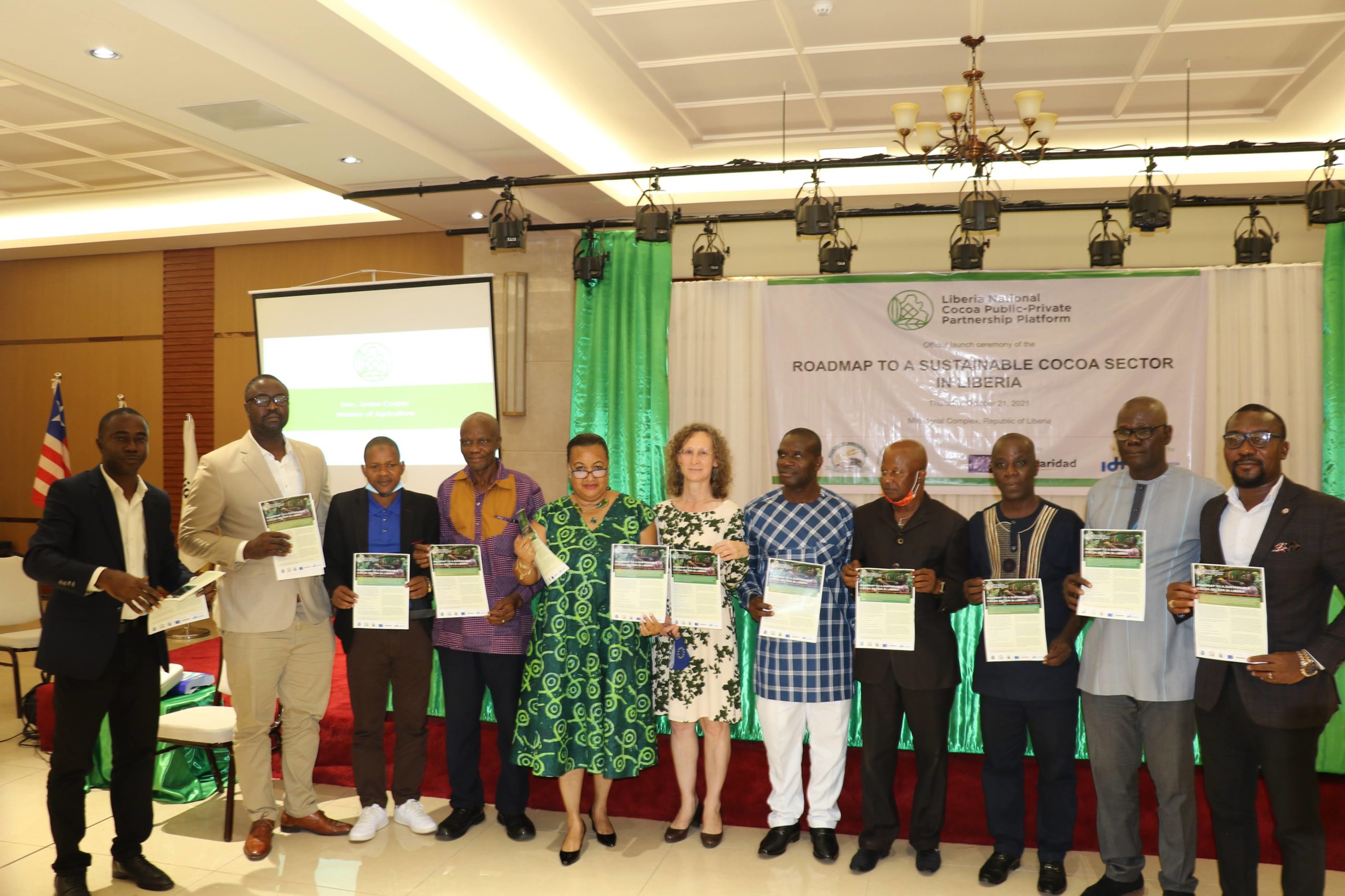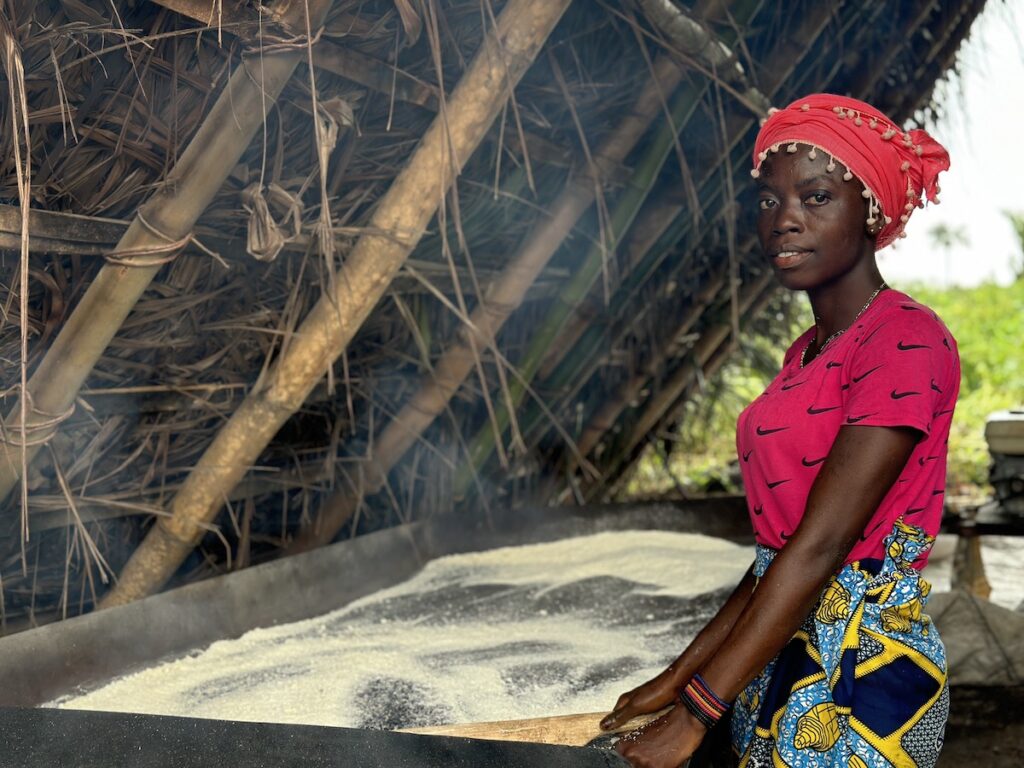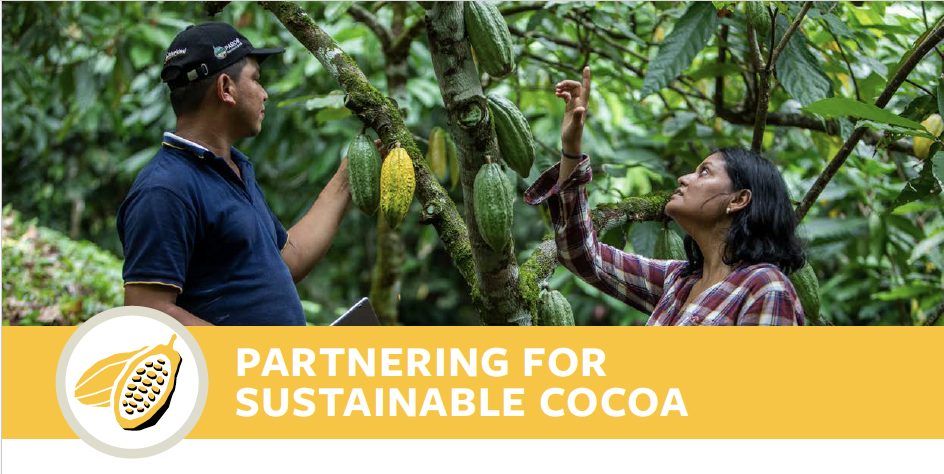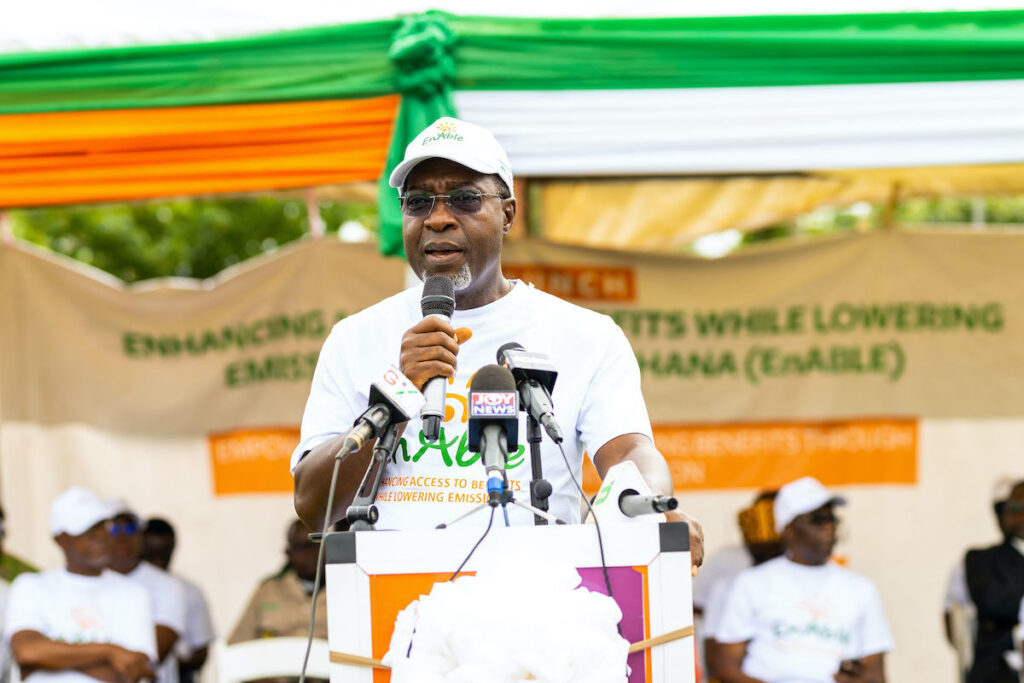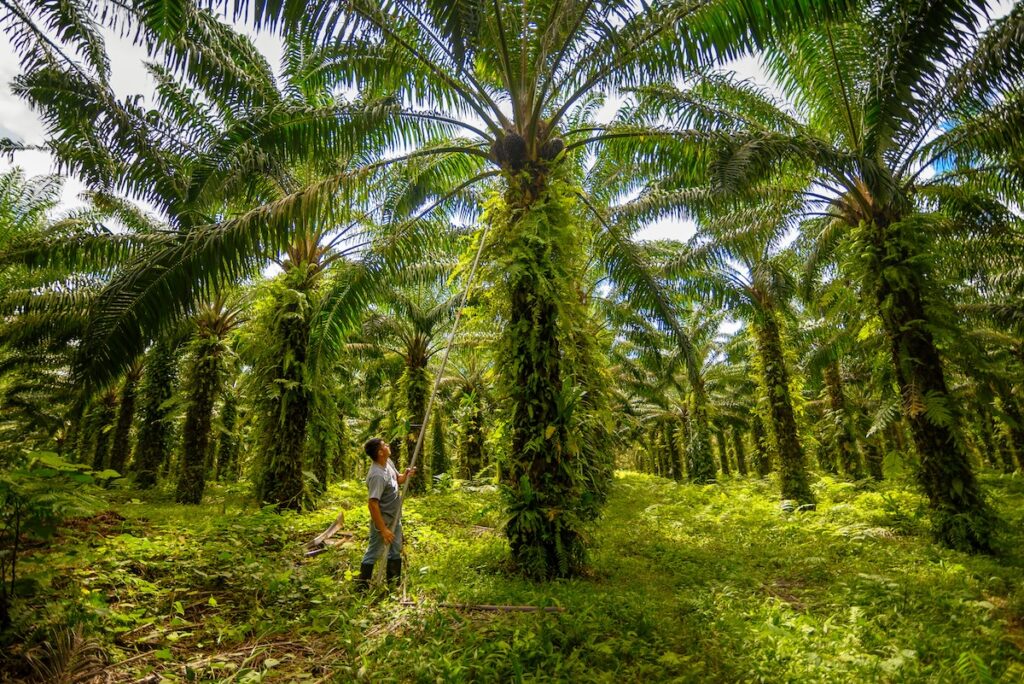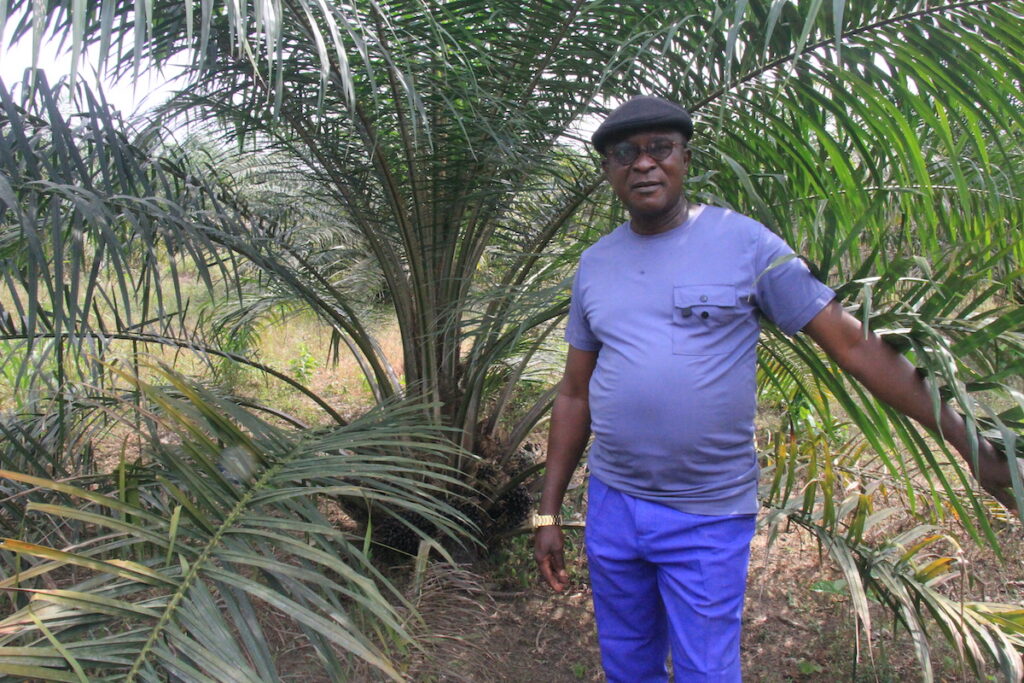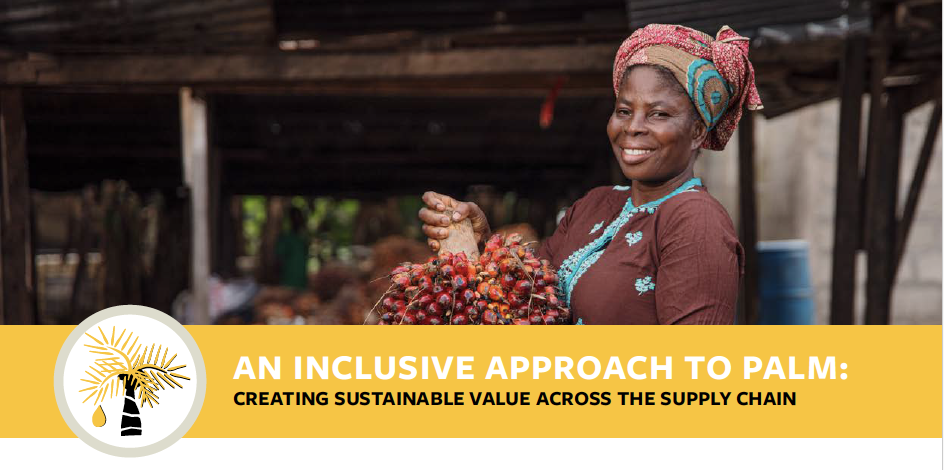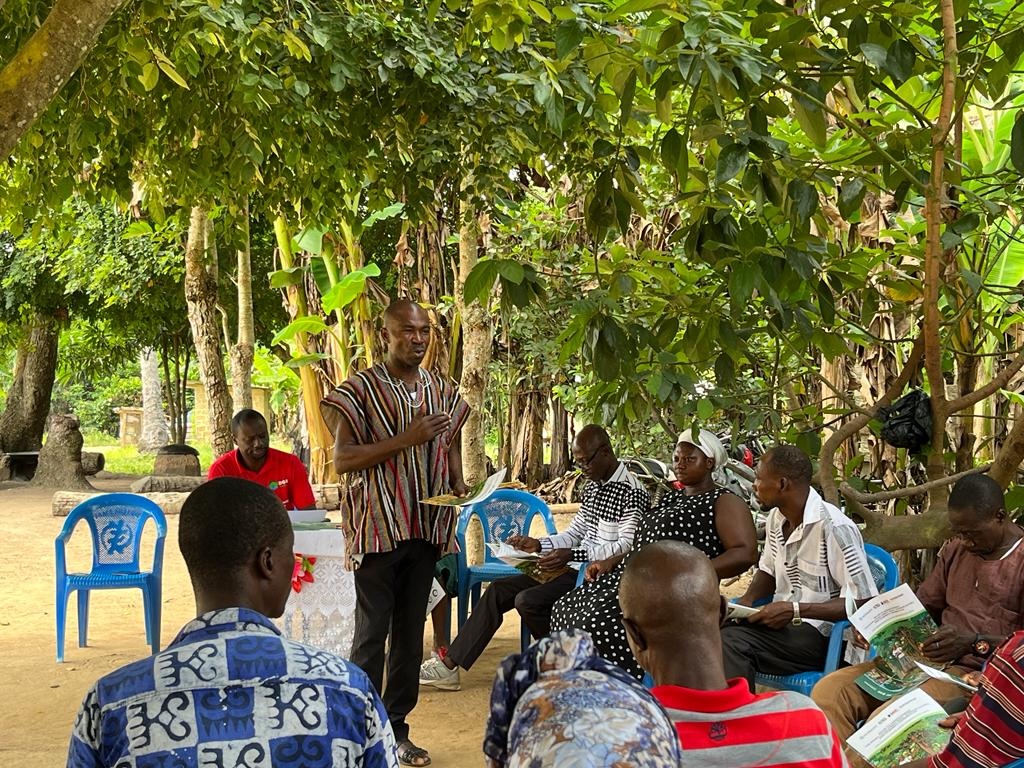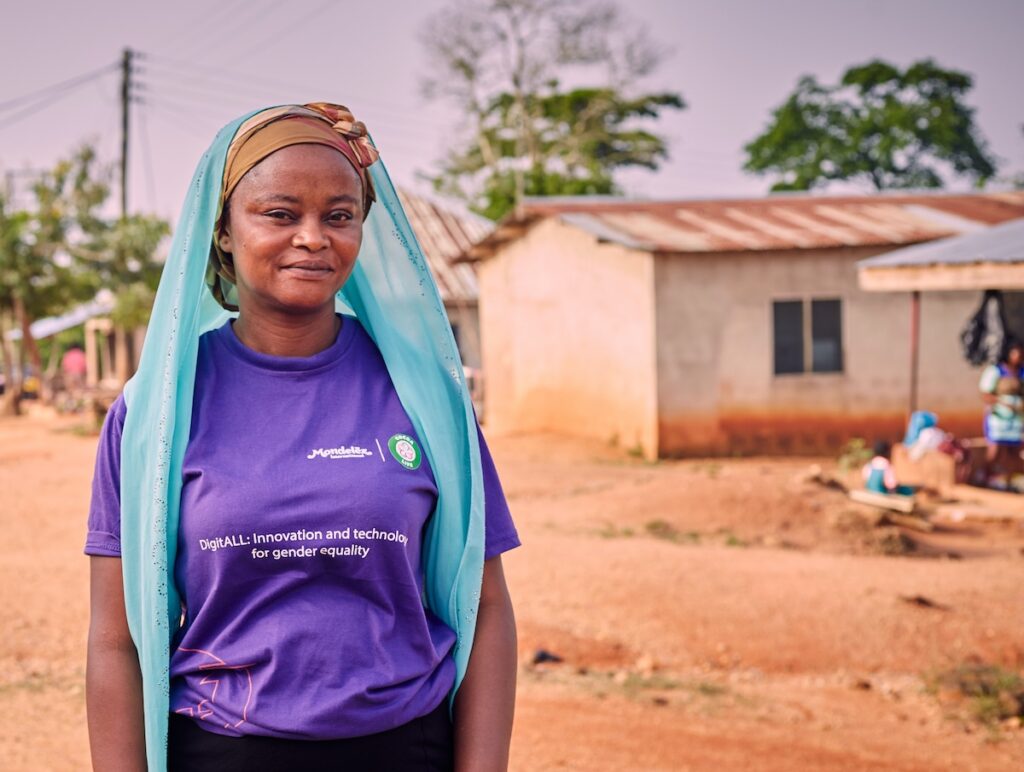The roadmap was developed by IDH – The Sustainable Trade Initiative, Grow Liberia and Solidaridad with funding from the European Union in Liberia through the Liberia Cocoa Sector Improvement Programme (LICSIP).
Michael S. Doe, country representative of Solidaridad in Liberia, said the roadmap will contribute to the revitalization of the Liberian cocoa sector by improving the quality of cocoa, internationally promoting it while protecting the environment.
“It is imperative for all stakeholders to ensure that we make this a working document, learn from the processes along the way, and improve on every component of the document,” he said.
Michael used the occasion to assure partners of Solidaridad continuous support for the cocoa sector.
“Even though the Liberia Cocoa Sector Improvement Programme, through which this activity was funded, is ending in December, Solidaridad will continue to engage stakeholders through other ongoing programme activities. We believe this document will still keep us all engaged,” he said.
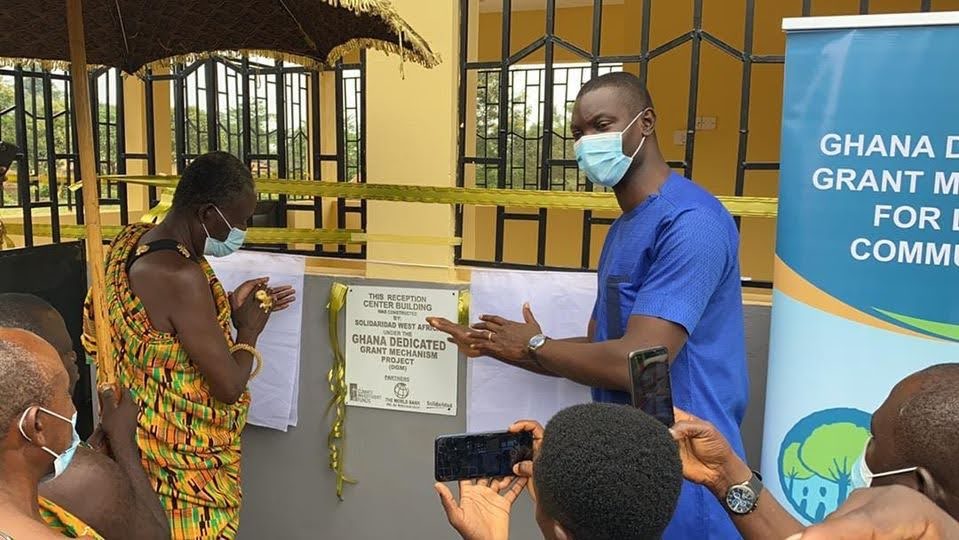
World Bank Touts Community-Focused Climate Action in Ghana
The World Bank has expressed satisfaction over implementation of the Ghana Dedicated Grant Mechanism for Local Communities (DGM) project.
Liberia’s Minister of Agriculture, Jeanine Cooper, said the roadmap marks an important step that will guide all in the development of the sector. “We are grateful to all our partners, including Solidaridad, IDH and the European Union, for supporting us throughout this process.”
She said the document received strategic contributions from farmers and sector actors, including producers and exporters. She encouraged Liberians to use the roadmap as a guide to invest in cocoa. This, she said, will improve the quality of the cocoa that is grown, processed and exported, and more importantly, boost the other sectors that are drivers of the country’s economy.
This will help make Liberian cocoa attractive to buyers as is the case of our regional competitors such as Ghana and Cote d’Ivoire.
Jeanine Cooper, Minister of Agriculture for Liberia
On cocoa certification, Cooper said the Ministry of Agriculture wants to build on, support and expand its efforts on certification. She called for a dialogue among certifying agents and representatives along the value chain to come to an agreement that the certification process will not just be borne by an individual private sector actor but others too.
For her part, Geertrui Louwagee, cooperation officer for the European Union Delegation in Liberia in charge of Rural Development, Food Security and Environment, said the plan to develop a roadmap was enshrined in Solidaridad’s programme proposal, noting the EU believed that the idea was a remarkable one that would propel the Liberian cocoa sector.
According to her, the EU is committed to its investments in developing Liberia’s cocoa value chain. “We believe that the crop has the potential to become one of Liberia’s success stories, in terms of development in Liberia,” she said.
The roadmap was launched by the Liberian National Cocoa Public-Private Partnership Platform (NC3P), a group of actors along the cocoa value chain who are tasked with providing guidance and direction for cocoa development.
The event also saw the signing of an agreement by the government, development partners, private sector and civil society organizations to work together to develop an economically viable, inclusive, deforestation-free and sustainable cocoa sector.
All signatories agreed to implement guidelines that support sustainable production and enable cocoa farming households to earn a living income by improving quality, increasing yields and diversifying production. They will work together to promote and market Liberian cocoa while improving the positioning and commercialization of the commodity on the international market.

